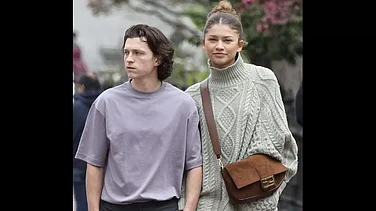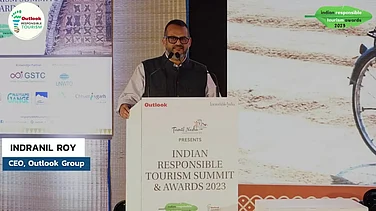More often than not, we?come across products inscribed with ‘Made in China’ labels. However, not many of us would be aware of the exact location in China where most of these products originate. That honour belongs to Yiwu, a city in the Central Zhejiang Province of East China.?
Exploring Yiwu, The Chinese Town Of Small Things
Boasting of every conceivable merchandise and product, Yiwu Market in China is a one-stop shopping destination that extends beyond your wildest imagination

Yiwu Market, or Yiwu International Trade City, is the world’s largest wholesale market—one that specialises in small and cheap goods. According to media reports, it accounts for nearly 60% of the global supply of cheap consumables and well over 75% of Christmas decorations and other goodies that are exported from here. Not without reason is it referred to as the ‘Christmas Village’ or ‘Commodity City’.

With 75,000 booths spread over 5.5 million square metres and five districts, the Yiwu Market is a one-stop destination for every conceivable kind of article. Trinkets, birthday candles, wall clocks, LED and decorative lights, pencils, pens, glass souvenirs, buckets, spades, umbrellas, flower wreaths and decorations, children’s toys—you name it! Before the aberration of the pandemic, there was an estimated footfall of 40,000 visitors daily, attracted, no doubt, by the cheap and diverse fare on offer. And according to some estimates, in the pre-pandemic era,?1,00,000 suppliers used to sell 4,00,000 different kinds of products. Little wonder then that it is almost impossible to explore the whole market in the course of a single day.
The Origin
Today, Yiwu is a gigantic amalgamation of malls, wholesale stores and endless shopping spaces. But, you would be surprised to know that this wasn’t always the case. Trade has been an integral part of the Yiwu countryside, but due to the presence of barren land, for centuries, people bartered candies and sugar for chicken feathers.
Things changed in September 1982, when the administration set up the Hu Qing Men market in Yiwu. Originally having only a few hundred stalls and shops, it was a momentous and courageous decision, especially since it was one of the first free markets in a communist country. The market’s popularity grew by leaps and bounds in the next decades, transforming Yiwu from a backward, impoverished, rural outpost to a thriving, modern city.

And, what a transformation it has been! Even with a rampaging pandemic, 85% of artificial Christmas trees—a staggering 68 million trees—came from China, a significant number of them from Yiwu. It achieved this feat despite reports stating that operational costs at Yiwu Market had risen by 20%–30% and exports and sales had fallen around 30%. Even the latest stringent epidemic control measures have failed to stop the juggernaut. Life and commerce rolls on, relentlessly, in Yiwu—and you may even argue that, pandemic or no pandemic, it is always Christmas in Yiwu Market.
-
Previous Story
 Tom Holland Recalls ‘Trip Of A Lifetime' Visiting India With Girlfriend Zendaya
Tom Holland Recalls ‘Trip Of A Lifetime' Visiting India With Girlfriend Zendaya - Next Story


















